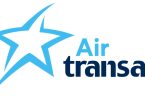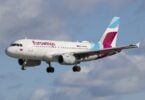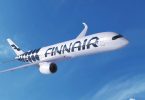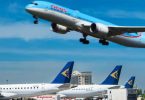Airlines must develop new routes in emerging economies if they want to survive, says Emirates Airline.
President of the Dubai-based carrier Tim Clark said Emirates had been able to harness the growth in such markets by developing new links between cities in China, India, South America, and Africa.
“Africa is an enormously powerful and potentially very strong continent. The Chinese influence in Africa is more obvious,” he told a head-to-head debate at World Travel Market, the premier global event for the travel market.
“As we started to connect these points, people started to flow in ways that we had not seen before. More fool those who do not harness what is going on, including the European carriers.
“It has slowed down a bit but is climbing again and climbing quickly.”
Clark warned that those who were “disingenuous” about Dubai’s growth – particularly the UK press – “do so at their own peril.”
“It is an open economy and suffered in the recession. We have taken stock and slowed down but watch this space very carefully,” he told Jonathan Strickland, director of JLS Consulting, who led the debate.
As well as its key geographical location and hub operation, Emirates’ results have been boosted by a program of cost cuts and lower fuel prices.
Clark said Emirates will close the financial year significantly up on previous profit forecasts, thanks to the quality of its brand, a fall in the oil price and favorable exchange rates.
Seat factors remain “in the 80 percent region” albeit with a lower yield per seat, and the carrier has taken 16 percent off its unit costs, thanks to a recruitment freeze and efficiency drive.
“We grew so rapidly that certain things got away from us, and we found a pattern of legacy processes that were not efficient,” said Clark.
He admitted that delays by Airbus with deliveries of the new A380s were “a real blow.”
Emirates will have 15 A380s by December 2010 rather than by June and won’t be able to introduce the aircraft on the route to New York as planned.
Clark said the new airliner is a “crowd puller,” with passengers going out of their way to fly on it once they have experienced it, and load factors on the five A380s already delivered are about 90 percent.
“From an operations point of view, it is exceeding the numbers Airbus gave us – it is more fuel efficient,” he added.
“Airlines have shied away from ordering them but that will pick up as the global economy picks up. Airports like Heathrow are congested so they need larger aircraft.”
He also questioned the value of airline alliances and warned that the recession should not be a “smokescreen” that allows consolidation and anti-trust immunity to be granted to rival airlines.
“We want to be masters of our own destiny,” he told the debate.
“Alliances are good for airlines that need to be part of a group but if you look at the number of players that have failed in alliances, and US airlines in Chapter 11, I wonder about the benefits of alliances.”
He said Emirates was able to “look after itself” but he was concerned about the impact of alliances on consumers.
FlyDubai, the low-cost operation launched earlier this year by the emirate of Dubai, is run “at arm’s length,” said Clark.
However, it serves routes that Emirates does not, so there are opportunities for traffic to feed between the two carriers, he added.






















